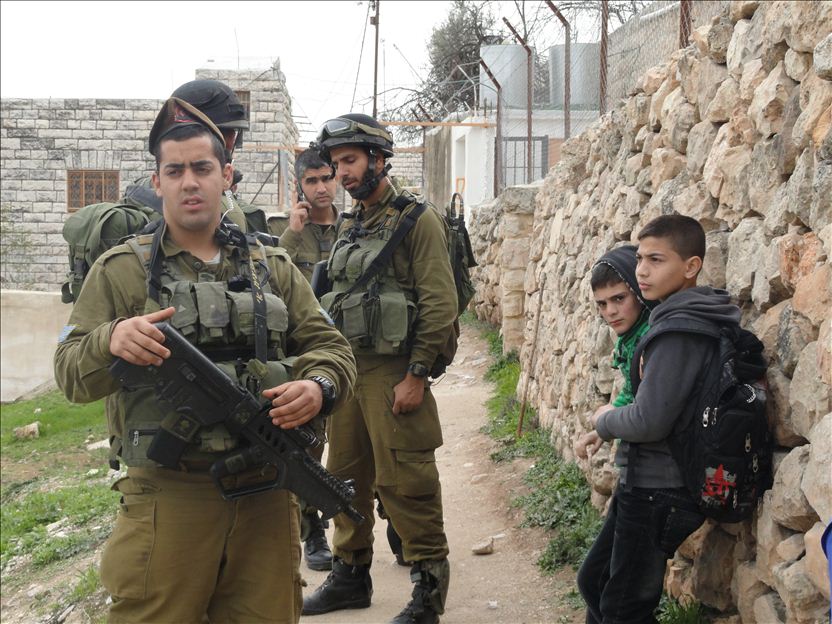Tag: Qordoba School
-
The implications of arbitrary Israeli military night raids in Al Khalil
by Mira, Rune and Paige 19 March 2012 | International Solidarity Movement, West Bank With the change of the Israeli army brigades last week, it has not been quiet in Al Khalil. It seems like the new soldiers are using the city as a training field. It started about one about a week ago, on Sunday…
-
Hebron: At least 10 children arrested by Israeli military in one week
by Satu Gustafsson 11 February 2012 | International Solidarity Movement, West Bank The extreme Golani Unit of the Israeli military is escalating its arrests of Palestinian children in Al Khalil (Hebron), targeting boys between the ages of 12 to15 years old with at least 10 reported cases of child arrests made just in the span…


